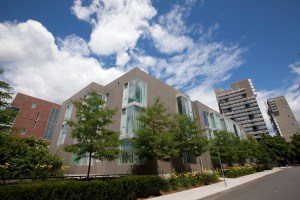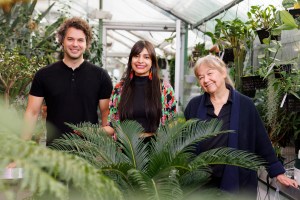All articles
-
Nation & World
What remakes a legend most?
Greek Mayor Kostas Bakoyannis presented his plans for “Reinventing Athens” during a talk at the Minda de Gunzburg Center for European Studies.
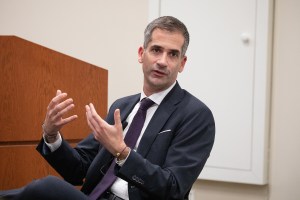
-
Science & Tech
Collaboration generates most complete cancer genome map
An international team of 1,300 scientists has generated the most complete cancer genome map to date, bringing researchers closer to identifying all major cancer-causing genetic mutations.
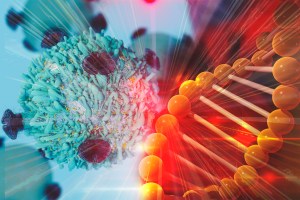
-
Campus & Community
Three honored for inspiring students
Three faculty have been named recipients of the 2019 Fannie Cox Prize for Excellence in Science Teaching.
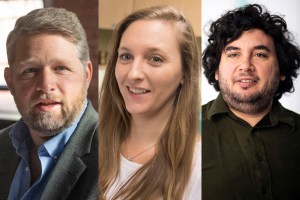
-
Nation & World
Reframing civics education
Harvard’s Democratic Knowledge Project bridges core knowledge, diverse perspectives, and agency to statewide pilot of new interactive schools’ curriculum.
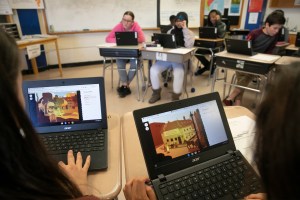
-
Science & Tech
Evaluating the hidden risks of herbicides
Research into the gut microbes of wasps shows that exposure to atrazine, a widely used herbicide, leads to changes in the gut microbiome that are passed to future generations. Findings indicate that the microbiomes of insects, including pollinators, and of humans should be considered when evaluating the biorisk of pesticides.
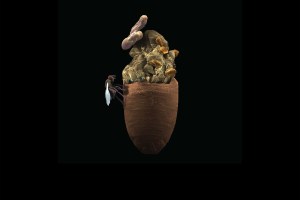
-
Nation & World
Has Trump remade the presidency?
In a new book, authors say Donald Trump is remaking the American presidency into something far more powerful and personal than the country has ever seen.
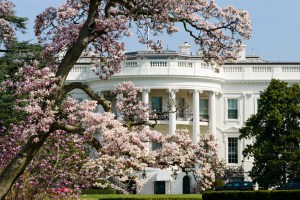
-
Health
Coronavirus cases hit 17,400 and are likely to surge
Harvard epidemiologist Michael Mina said as many as 100,000 people are likely already infected with the new coronavirus, with many more likely to come.
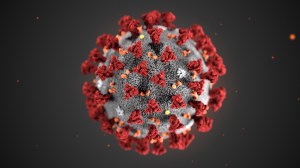
-
Campus & Community
Ben Platt named Man of the Year
Award-winning singer, film and Broadway star Ben Platt has been named Hasty Pudding’s Man of the Year for 2020. He will be feted on Feb. 7.
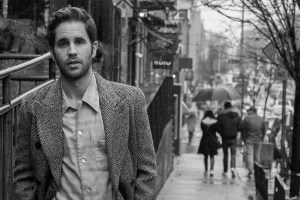
-
Science & Tech
Filling in the blanks of evolution
Harvard Researchers show what drives functional diversity in the spines of mammal.
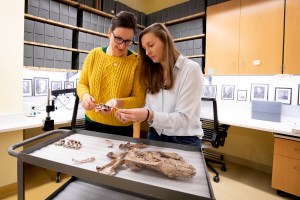
-
Campus & Community
Elizabeth Banks is roasted, toasted
Elizabeth Banks was honored as Hasty Pudding Theatricals’ Woman of the Year.
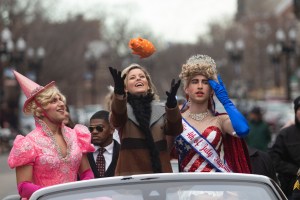
-
Campus & Community
A century of making society better
A panel on the power of education kicked off the Harvard Graduate School of Education’s centennial festivities.
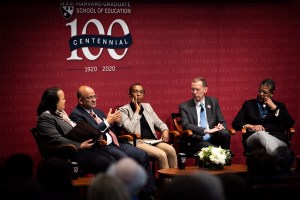
-
Nation & World
Working with principals in fire-scarred Australia
To allow more school principals to access their Leadership for School Excellence Program, instead of bringing Australian teachers to Cambridge, Harvard brought the program to them.
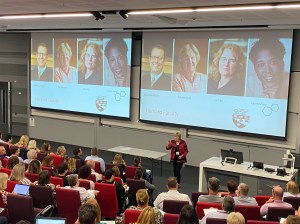
-
Nation & World
Get your head in the game
NBA coach Steve Kerr visits the Kennedy School to talk both sports and personal politics.
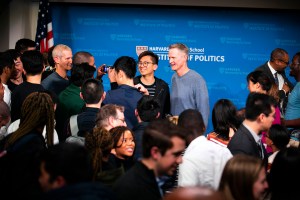
-
Arts & Culture
Girl with the golden arm
In this excerpt from Gish Jen’s satiric new novel, a star pitcher struggles against the police state in a riven, dystopian America.
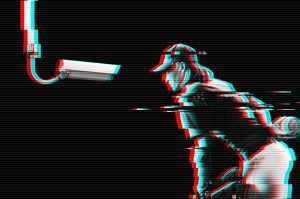
-
Science & Tech
Hidden hearing loss revealed
Harvard researchers have found two biomarkers that may help explain why a person with normal hearing struggles to follow conversations in noisy environments.
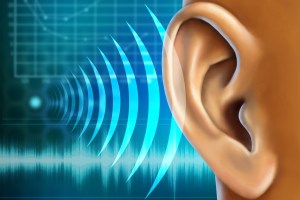
-
Work & Economy
House of cards
A new report from the Harvard Joint Center for Housing Studies breaks down in a series of charts how it has become harder than ever for middle-income Americans to afford rent.

-
Campus & Community
Authors’ aerie
A photo gallery captures authors at work in the new home of Harvard’s creative writing program atop Lamont Library.
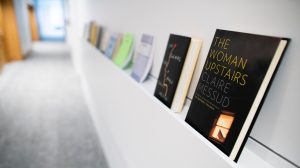
-
Campus & Community
After the whirl of starting college, a time to regroup
First-year retreat encourages reflection on values and goals and offers tools for wellness and mindfulness — and a chance to meet people and have fun.
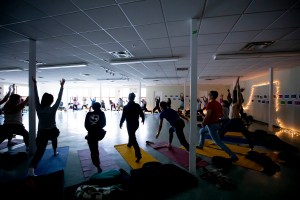
-
Science & Tech
Jeté into an ionic bond
Ph.D. student Frederick Moss brings together the incongruous worlds of science and art.
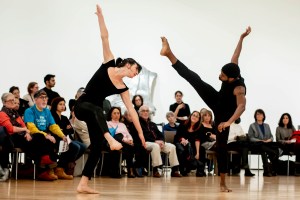
-
Campus & Community
A shot at the Super Bowl
Former Harvard player Kyle Juszczyk will be on the field Sunday when the San Francisco 49ers face off against the Kansas City Chiefs in Super Bowl LIV.
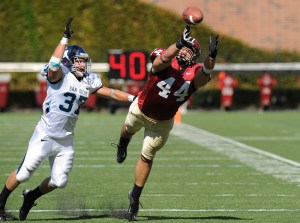
-
Health
What we know — and don’t know — about the coronavirus outbreak
As the number of coronavirus cases rapidly grows, the Gazette spoke with Professor of Epidemiology Marc Lipsitch, an expert in the spread of infectious disease and director of the Center for Communicable Disease Dynamics.
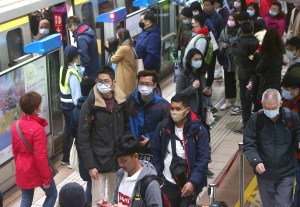
-
Arts & Culture
Hot fun in the wintertime
A selection of theater, music, and art events in Boston this winter.
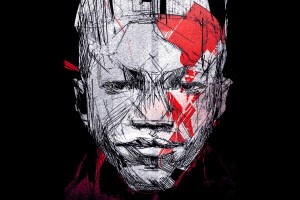
-
Science & Tech
Translating black holes to the public — in 25 languages
Harvard’s educational mission is bringing the universe’s strangest creation to the world, as short videos about black holes have been seen by millions.
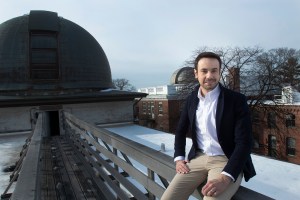
-
Science & Tech
Life’s Frankenstein monster beginnings
The evolution of the first building blocks on Earth may have been messier than previously thought, likening it to the mishmash creation of Frankenstein’s monster.
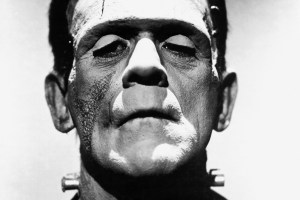
-
Nation & World
A flight from homophobia
Neal Hovelmeier, a gay teacher fired from his job in a Zimbabwean school who is now a Radcliffe Fellow and Harvard Scholar at Risk, is working on a play informed by his experience and a curriculum based on intolerance.
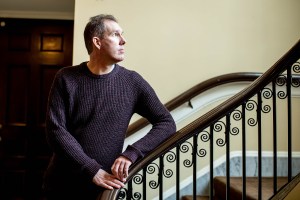
-
Nation & World
Australian wildfires will claim victims even after they’re out
Long-term exposure to the smoke-filled air hanging over much of the country could lead to many premature deaths in Australia.

-
Science & Tech
Next generation of organ-on-chip has arrived
Multiple human organ chips that quantitatively predict drug pharmacokinetics may offer better, accelerated drug testing
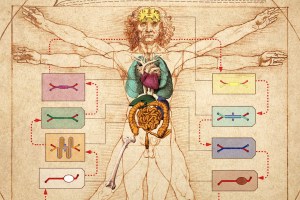
-
Nation & World
Nonviolence in mass uprisings
Harvard researchers develop interactive map that provides detail about mass uprisings around the world.
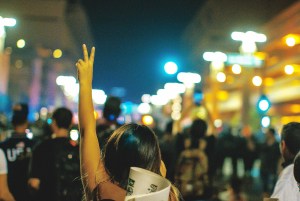
-
Nation & World
How America went astray
Nicholas Kristof and Sheryl WuDunn return to Kristof’s rural Oregon hometown to find the roots of white working-class anger

-
Campus & Community
Harvard Housing establishes new rents for 2020-21
Harvard University Housing (HUH) manages approximately 3,000 apartments, offering a broad choice of locations, unit types, amenities, and sizes to meet the individual budgets and housing needs of eligible Harvard…
